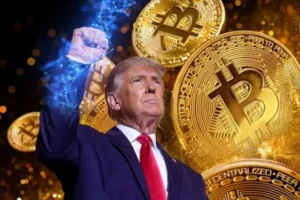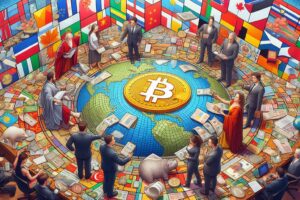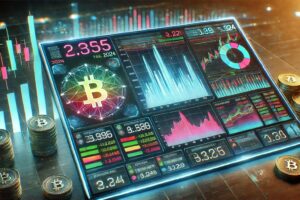
For as long as one could remember, prediction markets-the platforms where people bet on the potential outcomes of future events-have evoked great interest. However, with blockchain technology emerging, prediction markets have transformed into a decentralized platform where ease of security, transparency, and ability to include are added. Here’s what decentralized prediction markets are, how they work, their key features, and what their potential benefits and dangers are.
What are decentralized prediction markets?
A decentralized prediction market is a blockchain-based marketplace where participants can trade the outcome of future events without any dependency on central authorities. Unlike conventional prediction markets, decentralized markets do not rely on the involvement of an intermediary in the form of a company or organization that arranges the transactions involved in the event outcomes. Instead, smart contracts and blockchain secure the reliability and the transparency offered by this platform to bet or trade on event predictions.
Prediction markets-this is also known by the terms information markets and futures markets-work on the principle that collective individual knowledge or opinions can make fairly accurate predictions about future events. Decentralized prediction markets then branch out from that into the elimination of centralized oversight and the creation of a censorship-resistant platform.
Also Read: Exploring Innovative Blockchain Use Cases in Digital Identity Management
How Do Decentralized Prediction Markets Work?
The decentralized prediction markets function on blockchain and smart contracts; therefore, all the processes of work are transparent and autonomous. Here’s how this system works:
Event Creation: This usually begins with a proposition of some form of market around an event in the future. Be it a political election, sports results, or economic forecast. At this stage, an event creator defines parameters like possible outcomes, the event end date, and reward pool structure.
Funding and smart contracts: Upon establishing the event, a smart contract is created on the blockchain. This contract will hold the funds according to predetermined rules before the event, and it automatically allows for the dispersing of winnings. Using this, participants can fund the event pool through the purchase of desired outcomes as shares in return, which works just like placing a bet.
Trading Shares. A subcommunity can buy or sell shares on the different outcomes of an event, changing dynamically based on the collective opinion. When opinions shift based upon news and information input, prices shift, allowing traders to buy low and sell high. This is important to decentralized prediction markets because it is what indicates the probability assigned to one outcome or the other by the market.
Result Resolution: Once the event is over, an external data source, or “oracle,” will confirm the outcome of the event. An oracle inputs the event outcome into a smart contract which checks if the payments were correct and automatically secured. Oracles are part of this process because it connects the blockchain to real-world data.
Prizes distribution : It directly transfers prizes directly to the wallets of winning participants, based on the final event results, in a safe and transparent manner, since smart contracts would make the payment to winning participants.
Key Characteristics of Decentralized Prediction Markets
Decentralized prediction markets are different from centralized ones in several ways:
Trustless systems: Participants don’t necessarily have to trust some central authority to handle funds or outcomes; decentralized prediction markets, for example, involve smart contracts on the blockchain that manage transactions.
Transparency: All transactions, such as bets and payouts, are stored in a public ledger. Therefore, the transparency at this level will make participants verify whether the system is valid and also whether the results coming out of it are accurate.
Accessible: Decentralized markets are accessible to all who have an internet connection and a crypto wallet. Such markets are, therefore, more accessible worldwide while providing a complete substitute to centralized markets.
Censorship Resistance: Blockchain-based decentralized prediction markets are censorship resistant. It means that people can market on topics that mainstream platforms may refuse due to political, cultural or social sensitivities.
Improved Liquidity: Decentralized markets provide a more liquid trading environment through which participants can enter and exit positions anytime. The structure encourages continuous participation and drives price discovery based on real-time information.
Examples of Decentralized Prediction Markets
A few notable platforms have launched decentralized prediction markets:
Igor: Igor is one of the first decentralized prediction markets. It launched on the Ethereum blockchain, and users can utilize it to create, trade, and settle event markets. Igor uses its local token to facilitate staking and dispute resolution.
Gnosis: The other alternative is Gnosis-a company building market infrastructure on Ethereum. Tools that Gnosis offers include Gnosis Safe, which is a multi-signature wallet, and Gnosis Protocol, a decentralized trading protocol.
Advantages of decentralized prediction markets
Decentralized prediction markets, no doubt promise much in several fields through the unique features of the following:
Effective forecasting: Prediction markets gather information from diversified participants and create accurate forecasts. Many companies and governments already make decisions based on prediction markets, and decentralization only makes them more reliable and efficient.
Innovative Crowdsourcing Information can be crowdsourced through decentralized markets. For example, such a platform will allow governments to check how people are feeling in a certain policy initiative or public health initiative so that public opinion becomes transparent almost in real time.
Hedge risk: We can hedge risks of potential failure with forecast markets. For example, a firm can create a market in anticipation of certain risks facing its industry, like regulatory changes or economic recessions.
Resistance to manipulation: Forecast markets tend to be manipulable, especially when controlled by powerful institutions. However, it is not so with decentralized platforms as control is diffused among participants and therefore naturally resilient to manipulation.
In financial inclusion, traditional financial markets require regulatory oversight and are often limited by geography. Here, decentralized forecast markets are open and global. Which enables individuals in regions with fewer financial services opportunities to participate in worldwide financial markets.
Challenges and Risks in Decentralized Prediction Markets
Decentralized prediction markets are not without their challenges.
Oracle Dependence: Decentralized prediction markets rely on the oracle to provide information related to actual results of real-world events. In the event that the oracle is broken, wrong payments happen, and thousands of dollars lost to participants.
Regulatory Uncertainty: Many governments are taking an interest in DeFi applications. Partly because they will enable actors to circumvent the traditional structures of regulation. Prediction markets are usually gambling and therefore gambling-based, so there is a regulatory question mark. At least in jurisdictions with repressive gambling laws.
Security Risks and Volatility: As with any blockchain-based system. The risks range from the hacking of smart contracts to being manipulated by malicious actors. Furthermore, the volatility of price in cryptocurrencies may be felt directly by consumers in markets in which stablecoins are not the base currency.
Market volatility: Short forecasting markets have lower liquidity. On account of this condition, participants find it difficult to enter or leave their positions effectively, making the market less attractive and less trustworthy.
Social Implications Decentralized prediction markets pose ethical questions. Especially when these markets are based upon sensitive or controversial subjects such as natural disasters or even personal tragedies.
Future of Decentralized Prediction Markets
Decentralized prediction markets have a bright future, particularly with the development of blockchain technology. Their future can be expected to take some of the following directions:
Improve Oracle Solutions: The value of accurate event verification is getting ever greater. As such, more complex oracle networks such as Chainlink and decentralized oracle protocols are being developed to provide prediction markets with reliable real-world data.
Integration into DeFi: Prediction markets can be integrated into the horizons of decentralized financial applications. Prediction markets could be offered to users as an alternative to hedging financial risks within a framework. This could lead to products that are extremely innovative by combining derivatives trading with lending and insurance.
Wider Adoption: As more regulation frameworks are put in place for blockchain and decentralized finance. Decentralized prediction markets will most probably gain general acceptance across sectors from government and finance to entertainment and social research.
AI Integration: AI should supposedly be capable of analyzing big amounts of data better for more accurate predictions or have the ability to adjust market parameters automatically based on historical patterns. Making the market more efficient and accurate.
Also Read: Matka (2024) Movie Review: An Ambitious Period Drama That Falls Short
The outcome
Decentralized prediction markets come from an exciting intersection of blockchain technology, finance, and forecasting. On the one hand, it democratizes access to predictive financial products. Whereas on the other hand it offers a unique alternative to traditional centralized markets. Challenges in Oracles, regulation, and security are still to be met. Once such challenges are overcome, decentralized prediction markets could quite possibly revolutionize the way people collect and use information to make predictions and manage risk. Whether it is for economic forecasting, public sentiment assessment, or social research, decentralized prediction markets have enormous potential to flourish in the digital age.







